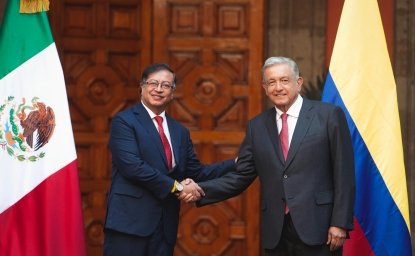Just When You Thought It Had Hit Bottom: Venezuela Sinks Deeper Into Authoritarianism
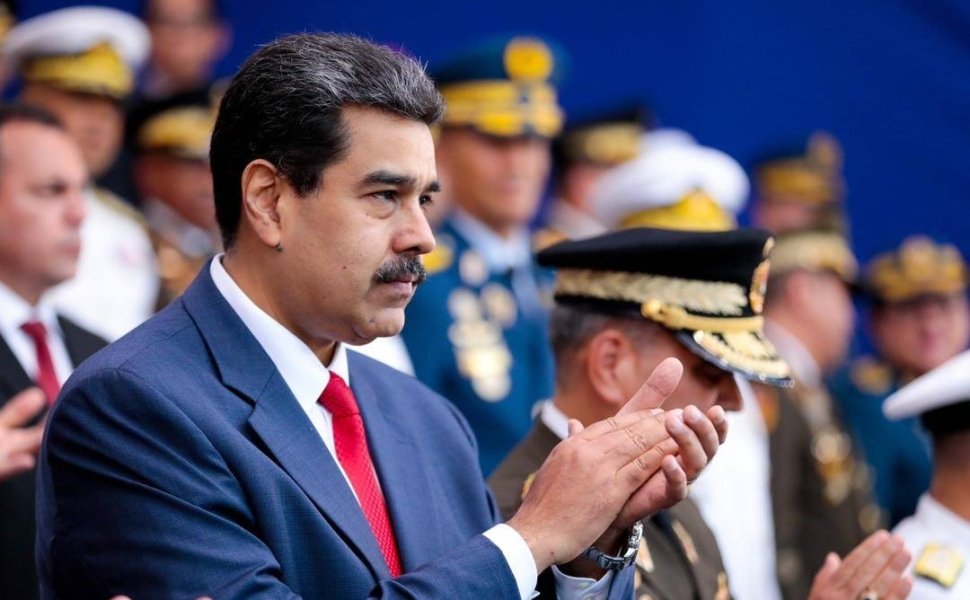
Episode 4:
As President Trump mused publicly about a meeting with Venezuelan strongman Nicolás Maduro, our experts and a special guest, Latin American Program Global Fellow Michael Penfold, discuss the vanishing prospects for fair elections in Venezuela, the wisdom of direct engagement with the regime, and the influence of electoral politics on U.S. policy toward Venezuela.
Available on: Spotify; SoundCloud; Apple Podcasts
Listen to previous episodes of Americas 360
Duncan Wood
- "Under the AMLO administration... [Venezuela] has become a domestic political issue in Mexico, partly because of all the comparisons that have been drawn between Chavez, Maduro, and AMLO."
- "I personally see a very big difference between Maduro, Chavez on one hand, AMLO on the other, but certainly there are reasons to be concerned for the future of democracy in Mexico."
Christopher Sands
- "Canada is aligned with the United States on the issue of Venezuela in opposition to Maduro [and] joined the Lima Group to be part of a regional effort to bring about change in Venezuela, [but] is not aligned with the United States on Cuba... It's an interesting control group to contrast with U.S. politics because some of the elements are there and yet Canada has very much locked steps with the United States."
- "One of Venezuela's great exports is oil: it's a heavy kind of oil. Canada's oil sands produce a very similar type of oil. One of the things that's been happening is that Canada has been keeping Gulf Coast refineries busy with Canadian oil so that the jobs impact on the United States... hasn't been as keenly felt."
- "Canada is waiting for some sign that we could make some progress [in Venezuela]... its focus has been on democracy and on dealing with some of the impacts of refugees."
Cynthia Arnson
- "Every time you think that Venezuela has hit bottom, it manages somehow to sink even more. This logic that you squeeze and squeeze and squeeze until somebody cries uncle is just not playing out... I don't foresee any end in sight."
- "There is a fear, there certainly is the appearance, that Trump is very comfortable with authoritatian leaders: he's comfortable with the leader of North Korea or with Putin of Russia. He admires strongmen and he has described Juan Guaido as 'weak' andwe have heard from John Bolton... that President Trump saw Juan Guaido as a figure like Beto O'Rourke: someone who was out there making noise but did not have the power to win."
Benjamin Gedan
- "Historically, dialogue has been used by the [Venezuelan] regime to deflate the opposition..., to reduce pressures from the international community."
- "It's going to require real mobilization of the Venezuelan people to dislodge [the Maduro] regime. I think people have given up hope for that because of the extraordinary migration of Venezuelans... and the sense that the level of repression is such that nobody is courageous enough, understandably, to take to the streets."
Ricardo Zúñiga
- "What we've seen is the steady erosion of democratic institutions that make Venezuela different from Cuba. This is a country that had elements of democracy change dramatically in a generation."
- "The damage and havoc that [the situation] is generating in Venezuela's periphery is something else that is going to be important for us to track and continue to monitor. I think that will potentially help mobilize support for an intensive effort to see some sort of positive change in Venezuela."
Michael Penfold
- "What the [Venezuela] Supreme Court just did was to try to divide the opposition by taking control of the parties away from its natural leaders, banning… Guaidó’s own party and also making sure that by the time the new National Assembly is elected under these dire electoral conditions, there is a new loyal opposition emerging, and basically Maduro’s goal is to remove Guaidó’s leadership."
- "Venezuela... even before the coronavirus was less connected to Miami than Cuba is today. It’s a very isolated country. It’s becoming an economy that is becoming more and more dependent on... it’s relationship with authoritarian states such as Russia, Iran or Turkey."
- "The armed forces in Venezuela have historically been a very important player. When you go back, no political change has happened in Venezuela without their consent. Why do they remain loyal to the elite?...They’re big winners under the current circumstances. They control many different sectors including the oil and mining sectors in Venezuela. They control the import and export activities in the country. They’re not just an army, it’s an important corporate actor."
Guests

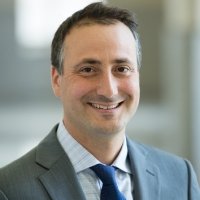
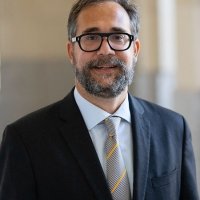
Professor of Political Science, Instituto de Estudios Superiores de Administración (IESA) Business and Public Policy School, Venezuela
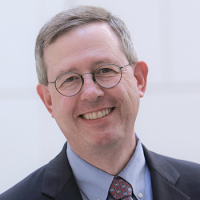

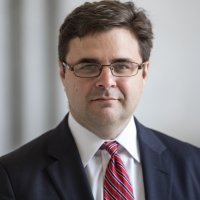
Moderator


Mexico Institute
The Mexico Institute seeks to improve understanding, communication, and cooperation between Mexico and the United States by promoting original research, encouraging public discussion, and proposing policy options for enhancing the bilateral relationship. A binational Advisory Board, chaired by Luis Téllez and Earl Anthony Wayne, oversees the work of the Mexico Institute. Read more


Latin America Program
The Wilson Center’s prestigious Latin America Program provides non-partisan expertise to a broad community of decision makers in the United States and Latin America on critical policy issues facing the Hemisphere. The Program provides insightful and actionable research for policymakers, private sector leaders, journalists, and public intellectuals in the United States and Latin America. To bridge the gap between scholarship and policy action, it fosters new inquiry, sponsors high-level public and private meetings among multiple stakeholders, and explores policy options to improve outcomes for citizens throughout the Americas. Drawing on the Wilson Center’s strength as the nation’s key non-partisan policy forum, the Program serves as a trusted source of analysis and a vital point of contact between the worlds of scholarship and action. Read more


Canada Institute
The mission of the Wilson Center's Canada Institute is to raise the level of knowledge of Canada in the United States, particularly within the Washington, DC policy community. Research projects, initiatives, podcasts, and publications cover contemporary Canada, US-Canadian relations, North American political economy, and Canada's global role as it intersects with US national interests. Read more


Brazil Institute
The Brazil Institute—the only country-specific policy institution focused on Brazil in Washington—aims to deepen understanding of Brazil’s complex landscape and strengthen relations between Brazilian and US institutions across all sectors. Read more


Argentina Project
The Argentina Project is the premier institution for policy-relevant research on politics and economics in Argentina. Read more

Related Episodes
Browse all episodes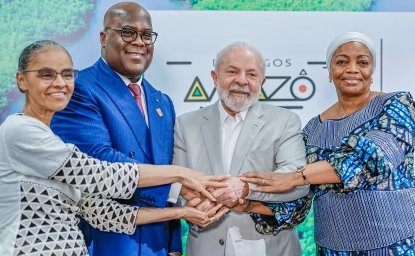
Brazil and the Future of the Amazon
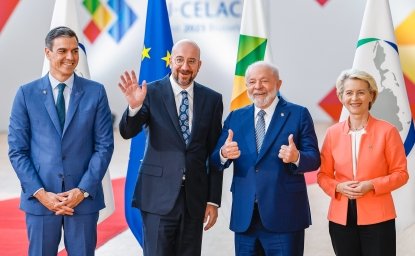
Europe and the Americas: The Road Ahead for Transatlantic Cooperation
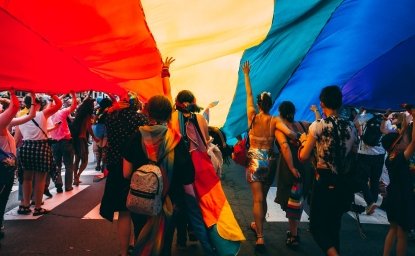
LGBTQ+ Rights in the Americas: Progress and Remaining Challenges
